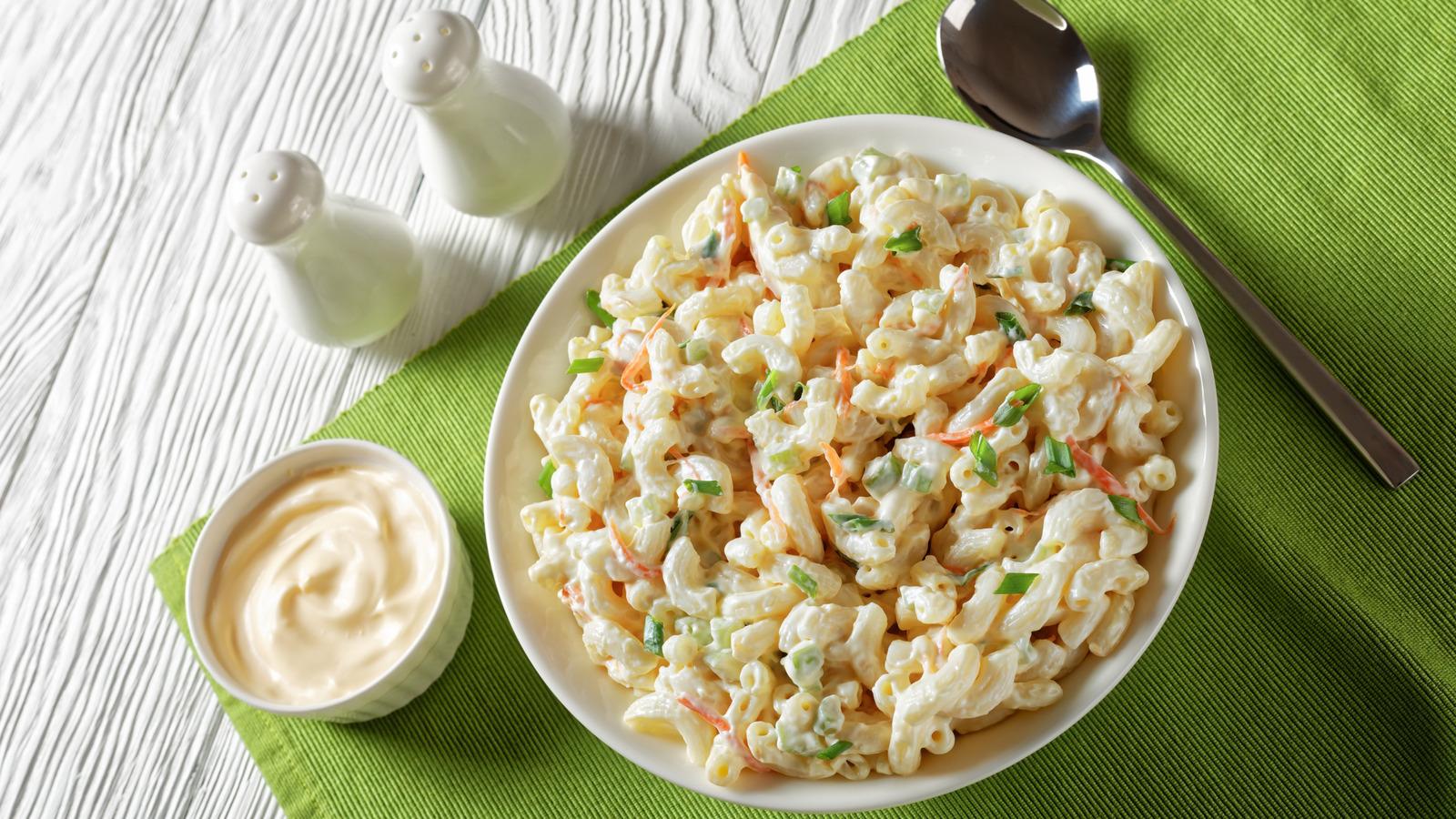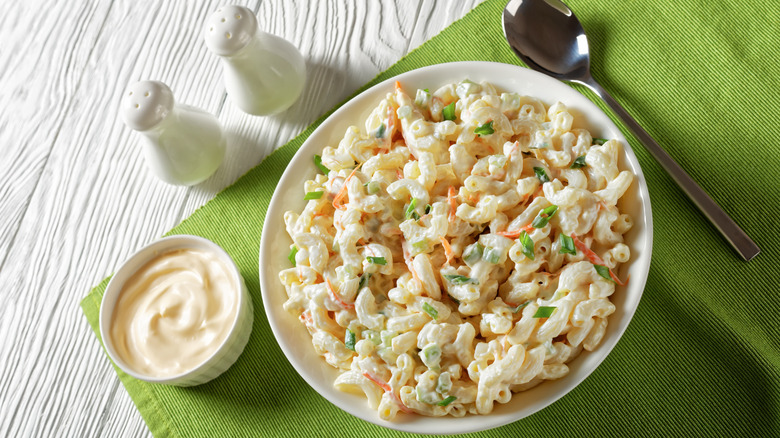
From_my_point_of_view/Getty Images
A staple of picnics and cookouts, macaroni salad is comfort food at its very best. While it's relatively easy to whip up a batch of this creamy, cold salad at home, most shoppers can find numerous pre-packaged varieties at their local grocery store, too. Many restaurants and foodservice organizations that offer macaroni salad also use pre-packaged products for enhanced efficiency and cost savings.
Despite the convenience of processed macaroni salad, however, it carries the same risks as all other processed foods in terms of potential food-safety issues. And when problems arise, food recalls are the natural outcome.
We did some digging and uncovered three significant macaroni salad recalls that have occurred in the U.S. These incidents affected products sold at major retailers like Aldi and Walmart, as well as bulk items distributed to food retailers and other establishments. In two of the recalls, food contamination was to blame, while the third incident resulted from inaccurate labeling that failed to disclose an allergen. It's true that food safety advancements have come a long way over the years, but it's not always possible for manufacturers to avoid these pitfalls.
Orval Kent Foods
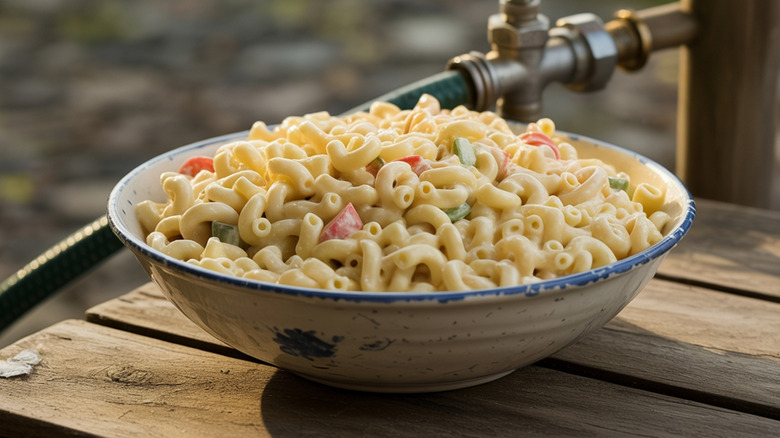
Oliver_Johnson/Shutterstock
Amish macaroni salad differs from a basic macaroni salad recipe in that the Amish variety uses Miracle Whip instead of mayo for a sweeter flavor and creamier texture. The addition of pickles or relish and hard-boiled eggs also sets this recipe apart.
Back in 2008, a company called Orval Kent Foods found itself in hot water when samples of its Amish macaroni salad tested positive for E. coli. This resulted in a recall of an estimated 23,000 pounds of product, which was sold under Orval Kent and Yoder's brand names for use by retailers and foodservice entities. Contaminated products made their way to nine states, including Pennsylvania, New Jersey, Michigan, Maryland, Delaware, Ohio, Indiana, Illinois, and New York.
A common source of food-borne illness, E. coli is associated with symptoms like stomach cramps, diarrhea, and low-grade fever. Many people make a fast and full recovery, but high-risk individuals face more serious complications that can be life-threatening. Fortunately, there were no consumer reports of adverse reactions resulting from Orval Kent products. While it doesn't appear that the company ever shared a reason for the E. coli contamination, bacteria and other germs can contaminate food at any point during the production and manufacturing process.
Reser's Fine Foods, Aldi
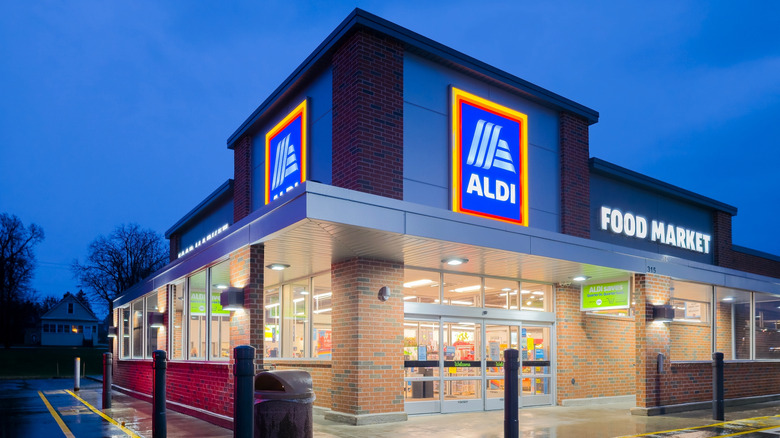
Mahmoud Suhail/Shutterstock
Gluten-free diets benefit people with celiac disease, which causes damage to the small intestine due to a faulty immune system response. Accordingly, people with gluten allergies and intolerances often review food labels carefully to determine whether an item is suitable for consumption. When labels contain inaccurate information, gluten-sensitive individuals can't make the best decisions, which was a major concern with Aldi's 2024 macaroni salad recall.
Manufactured by Reser's Fine Foods on behalf of Aldi, the product made its way to 15 states before the company discovered a labeling error. While the information on the front of the package was accurate, the bottom label featured ingredients for a different product, coleslaw, which does not contain wheat like macaroni salad.
At the time of the incident, consumers in Vermont, Alabama, Virginia, Connecticut, Tennessee, Florida, South Carolina, Georgia, Rhode Island, Louisiana, New York, Massachusetts, New Hampshire, Mississippi, and North Carolina were urged to check their refrigerators for the product and to discard it if they had a wheat allergy or intolerance. It's unclear how many products were involved in the recall, but the number of affected states indicates that the volume was significant. Similarly, there's no information on any reported adverse reactions involving the mislabeled item, which hopefully means that shoppers were unharmed by the labeling error.
Reser's Fine Foods, Walmart
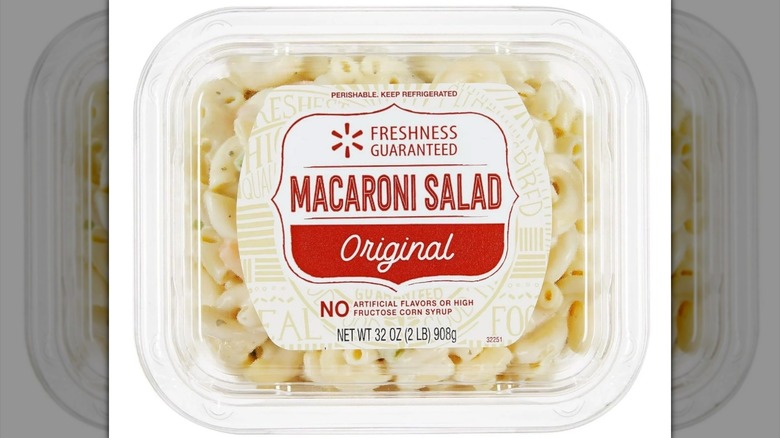
Walmart
When it comes to safety concerns, 2024 proved to be a challenging year for Reser's Fine Foods. The company's macaroni salad was subject to another recall that same year, only these products were created for Walmart and were distributed to store locations throughout nine states. Thanks to the presence of an unspecified foreign material, 1,782 containers of Freshness Guaranteed original macaroni salad were recalled across Missouri, Texas, Arkansas, Tennessee, Nebraska, Illinois, Oklahoma, Kansas, and North Carolina.
No instances of injury or illness were reported as a result of the contaminated product, and the FDA ultimately designated the incident as a Class II recall. These recalls are less serious since they're associated with temporary health issues that rarely progress to something severe. For comparison, Class I FDA recalls involve products that carry a substantial risk of causing significant illness or loss of life.
It's unclear how foreign materials ended up in the product. However, Reser's Fine Foods told Newsweek at the time that it responded to the recall by instituting "an additional screening process before fresh produce enters the manufacturing process."



